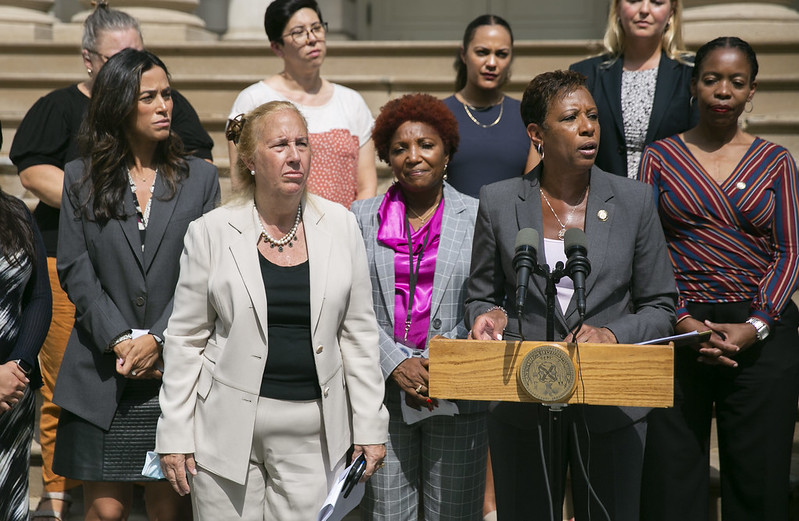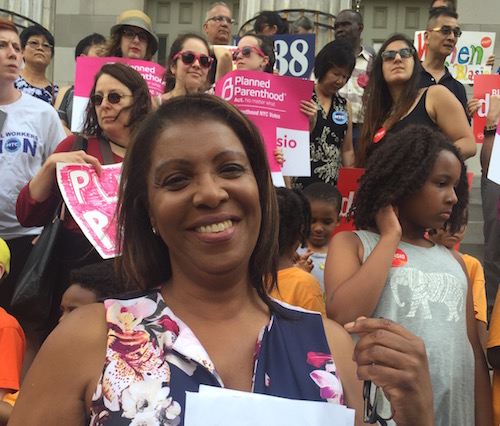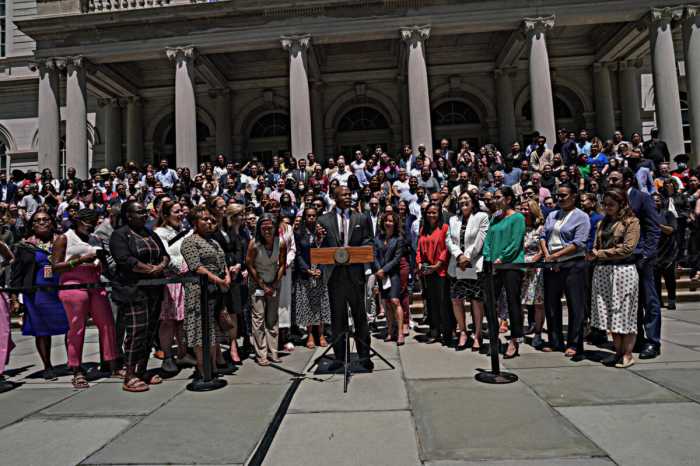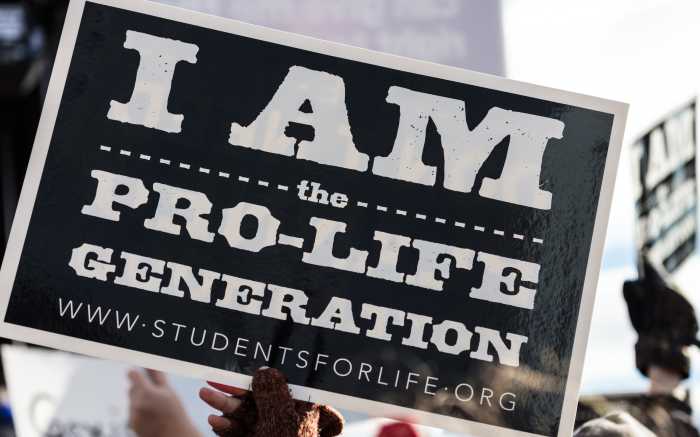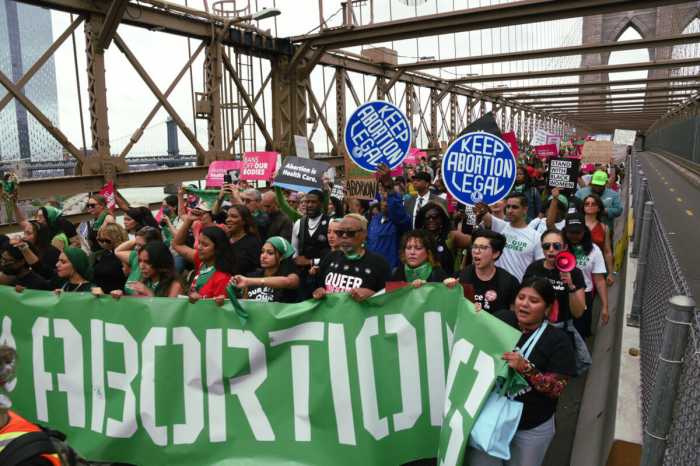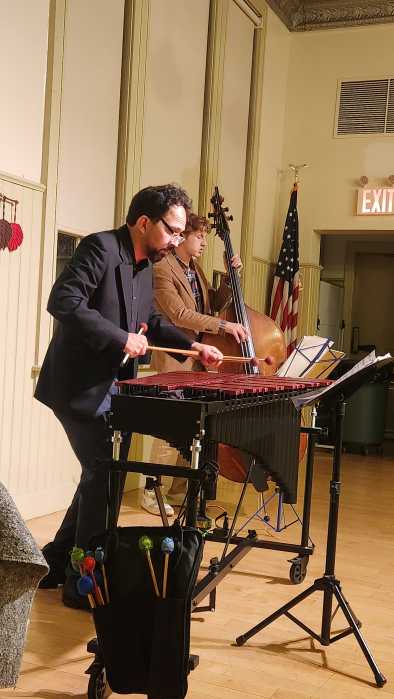In the women-majority City Council’s latest effort to support those seeking an abortion following the June U.S. Supreme Court decision overturning Roe v. Wade, several council members announced Tuesday they are allocating $1 million to support abortion access in the city.
Council Speaker Adrienne Adams and several of her colleagues took to the City Hall steps Tuesday to promote the allocation. The money comes from a combination of sources including $250,000 from the Speaker’s Initiative and $750,000 from a new Abortion Access Fund Initiative, the speaker said.
The funds will be split equally between the New York Abortion Access Fund (NYAAF) and The Brigid Alliance, Speaker Adams said, who will receive $500,000 each. The money allocated to NYAAF will go towards subsidizing abortions for those who can’t afford them, while The Brigid Alliance will use the funds to cover travel expenses for those seeking the procedures in New York City from out-of-state.
“These incredible organizations support women, trans and gender non-conforming individuals who are seeking abortions with a focus on those who are unable to pay for abortions,” the speaker said.
“Whether living here in New York, or traveling here to New York, we know that low income individuals and those who can’t afford care are the most impacted by the dangerous decision that the Supreme Court rendered this summer and I will even add the dangerous decisions that our lawmakers in Washington are making even today,” she added. “This funding we’re announcing today recognizes and steps in to help provide solutions.”
According to the the speaker, this funding is the largest commitment of municipal dollars to bolster abortion access among any city across the country.
It’s important that half of this funding is going towards supporting those traveling to New York for an abortion, Brigid Alliance Executive Director Odile Schalit said, considering several states have already moved to ban or significantly limit the practice. Plus, the numerous costs that come with traveling across state lines can be onerous for low income people, who are the most likely to be seeking the procedure.
“Since the Supreme Court decision to overturn Roe v. Wade, more and more Americans are being forced into government mandated pregnancies, unless they can figure out a way to an abortion clinic, sometimes hundreds of thousands of miles away from their home in a place like New York City,” Schalit said. “For those struggling to make ends meet, the costs of long distance travel, which include things like bus tickets, but also time off work and arranged care for children left at home, can put abortion out of reach.”
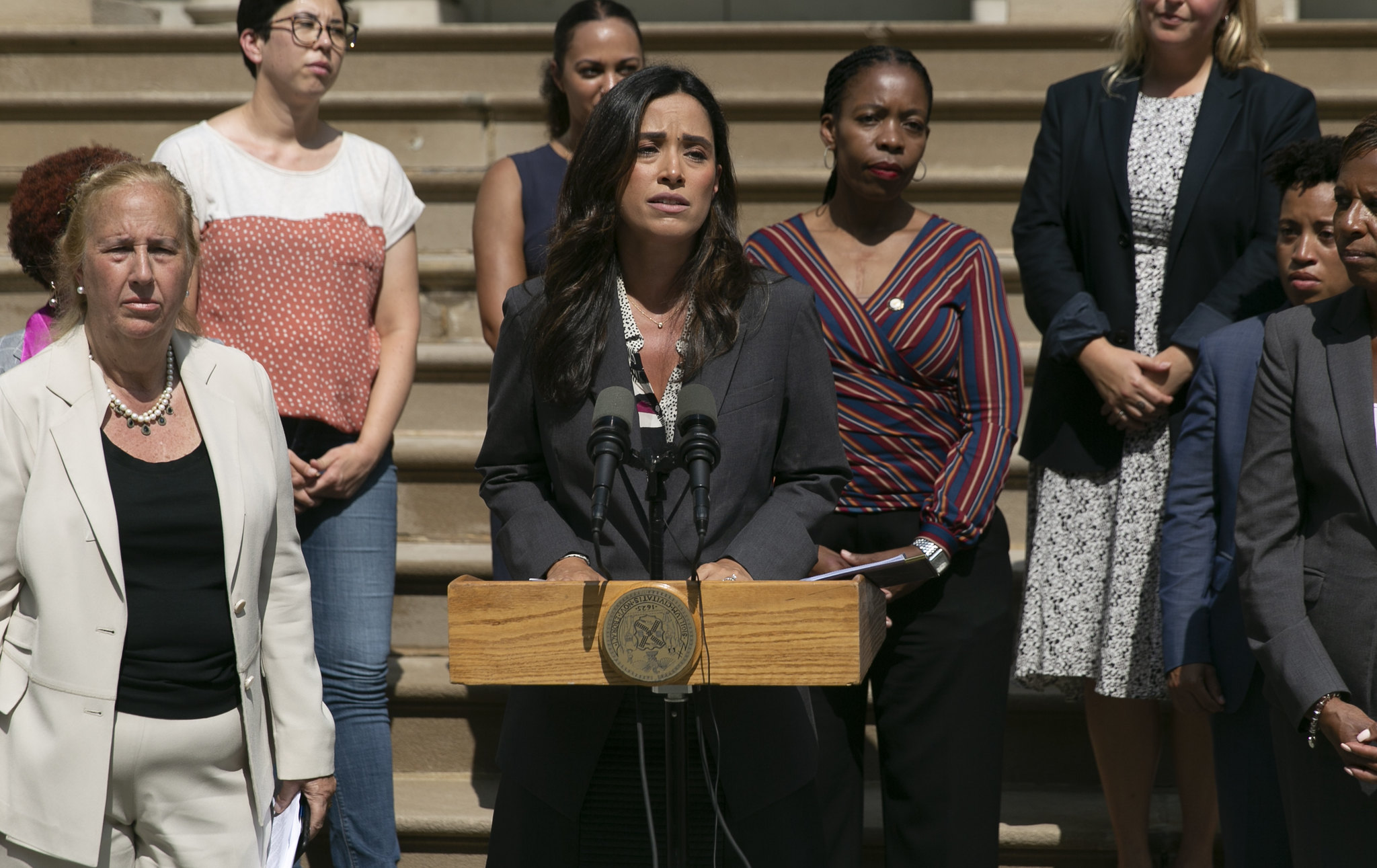
City Council Member Carlina Rivera (D-Manhattan), who was instrumental in securing the funding along with Council Member Shahana Hanif (D-Brooklyn), echoed Schalit’s points.
“This funding is critical, it’s absolutely necessary,” Rivera said. “It is not enough to protect legal access to abortion. We must work to strengthen logistical care and support, such as lodging or even child care.”
The $1 million commitment comes on the heels of two legislative packages the council passed in the wake of the monumental Supreme Court decision, which effectively ended national abortion rights and kicked decisions on the legality of the procedure back to the states. The first, dubbed the “NYC Abortion Rights Act” – which Mayor Eric Adams signed into law last month – included legislation that made abortion pills free at all city-run clinics and bars city agencies from detaining those who perform abortions or aid others in getting the proedure.
The second package, signed into law last week, focussed on combating maternal mortality and morbidity by requiring the city Department of Health and Mental Hygiene (DHMH) to post its annual report on maternal health to its website and further expanding doula services to low income communities.
Speaker Adams said the council’s focus on passing these bill packages and allocating this funding is a direct result of being a majority-women legislative body.
“It’s no coincidence that the first women majority Council is prioritizing abortion care, maternal health, childcare, and so much more. We’re a council made up of mothers, grandmothers, young mothers, mothers to be and members who may not even want any children of their own, but those members also support the health and well being of women and children with action.”


